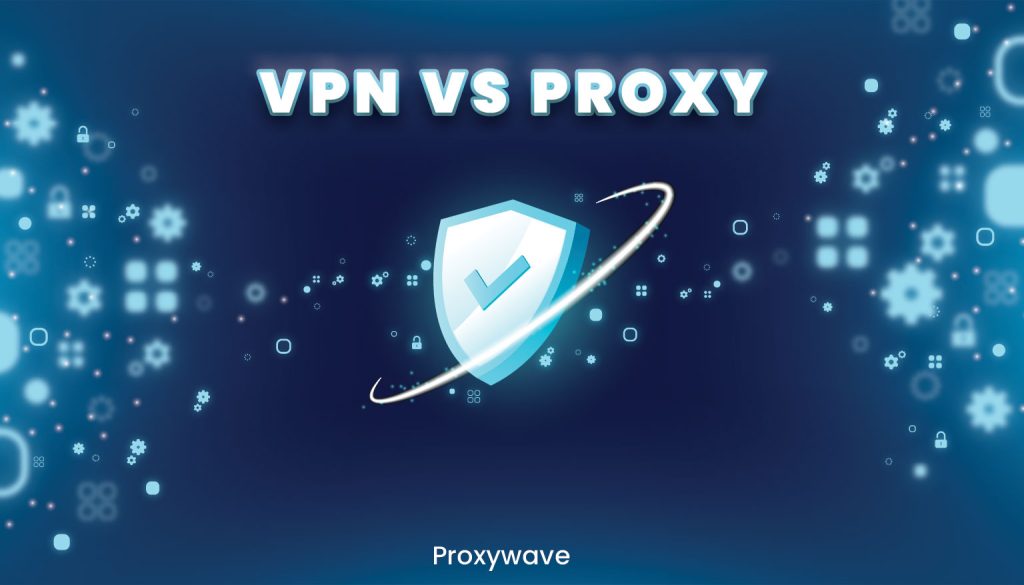
Explanation of online security and Privacy
Online security and privacy have become crucial issues in today’s digital age. According to Statista With the increasing number of cyber threats, it has become essential to protect our personal information and online activities from prying eyes. Online security refers to the measures taken to protect our digital devices and online accounts from unauthorized access, while online privacy refers to the control we have over our personal data and how it’s used by online entities. A lack of online security and privacy can result in identity theft, financial fraud, and other serious consequences.
With Proxywave 4G/5G mobile proxy, you can create your mobile proxy to enhance your online security and privacy by encrypting your online traffic and keeping your browsing activities anonymous.
A brief overview of VPN and Proxy
A VPN (Virtual Private Network) and a Proxy are two popular tools used to enhance online security and privacy.
A VPN creates an encrypted tunnel between your device and the internet, making it difficult for anyone to intercept your online traffic or access your personal information. It hides your IP address and location, making it difficult for websites and third-party trackers to track your online activities. VPNs also allow you to access content that may be restricted in your location.
A Proxy, on the other hand, acts as an intermediary server between your device and the internet. It masks your IP address and location, making it difficult for websites to track your online activities. Proxies can also be used to access content that may be restricted in your location, but they don’t provide the same level of encryption and security as VPNs.
Both VPNs and Proxies have their benefits and limitations, and the choice between the two depends on your specific needs and preferences.
Also Checkout- Why Use Residential Mobile Proxies for Web Scraping
How VPN works
VPN stands for Virtual Private Network, and it is a technology that allows you to create a secure and private connection between your device and the internet. When you use a VPN, your internet traffic is routed through an encrypted tunnel that is created between your device and a remote VPN server. This means that your online activity is shielded from prying eyes, such as your Internet Service Provider (ISP), hackers, or government surveillance agencies.
Here’s how VPN works:
When you connect to a VPN server, your device sends a request to the server, which then establishes an encrypted connection with your device.
Your device’s internet traffic is then routed through the encrypted tunnel created between your device and the VPN server.
As your internet traffic passes through the tunnel, it is encrypted, meaning that it is converted into a code that cannot be easily read by anyone who intercepts it.
The VPN server then decrypts your internet traffic and sends it out to the internet on your behalf.
When the internet traffic is sent back to the VPN server, it is encrypted again and sent back to your device through the same encrypted tunnel.
How Proxy works
A proxy server is an intermediary server that sits between your device and the internet. When you use a proxy server, your internet traffic is routed through the server, which can provide a number of benefits such as increased privacy, security, and the ability to access restricted content.
Here’s how a proxy server works:
Your device sends a request to access a website or other online resource.
The request is intercepted by the proxy server, which then forwards the request to the website or resource on your behalf.
The website or resource sends a response back to the proxy server, which then sends the response back to your device.
Your device receives the response as if it had made the request directly to the website or resource.
Comparison of VPN and Proxy in terms of security and privacy
| Proxy | VPN | |
| Security | Provides end-to-end encryption for all internet traffic, making it difficult for anyone to intercept or read your data. | Only encrypts traffic between your device and the proxy server, leaving your internet traffic vulnerable to interception or snooping after it leaves the proxy server. |
| Privacy | Hides your IP address and online activity from your ISP and other third parties, making it difficult to track your online activity. | Hides your IP address from websites and online services, but the proxy server can still see and potentially log your online activity. |
| Performance | Can slow down internet speeds due to the overhead of encryption and routing internet traffic through a remote server. | Can provide faster internet speeds since it does not encrypt all internet traffic, but can still introduce some additional latency. |
| Compatibility | Works with most devices and operating systems, but may require installation of software or apps. | Works with most devices and operating systems, and can often be set up without the need for additional software or apps. |
Benefits and limitations of using VPN and Proxy
Proxy servers have several benefits, including the ability to access geographically restricted content, hide your IP address from websites, and increase internet speeds by caching frequently accessed content. Proxies are also generally easier to set up and use than VPNs, and can often be used for free or at low cost. However, proxy servers have limitations such as the lack of end-to-end encryption, leaving your internet traffic vulnerable to interception or snooping after it leaves the proxy.
While both VPN and proxy servers have their uses, proxy servers can be a great choice for users who are primarily interested in accessing geographically restricted content or hiding their IP address from websites. Proxies are generally easier to set up and use, and can often be used for free or at low cost. However, users should be aware of the limitations of proxy servers, such as the lack of end-to-end encryption and potential latency issues. Ultimately, the choice between VPN and a proxy depends on the user’s specific needs and priorities.
Proxwave is an advanced and new-generation create-your-own mobile proxy solution that can completely solve the limitations of traditional proxies. While Proxwave offers mobile proxy solutions that can improve internet speeds and offer a high level of privacy.
To know more about how Proxywave works to help you build your own 4G/5G proxy check out Proxywave full guide today.

